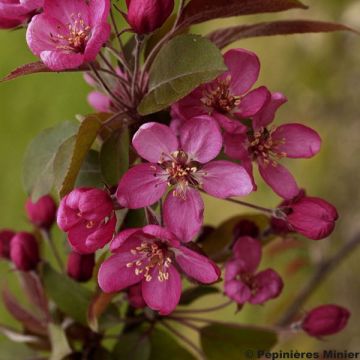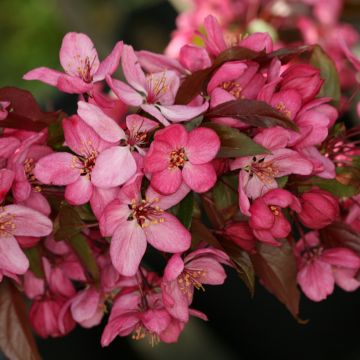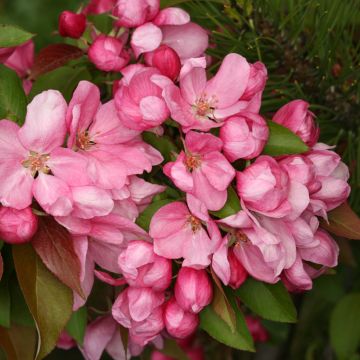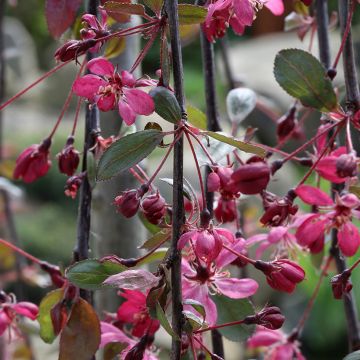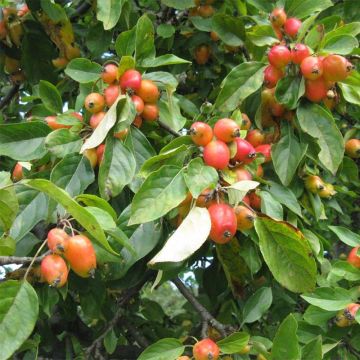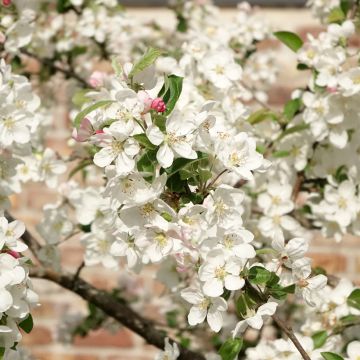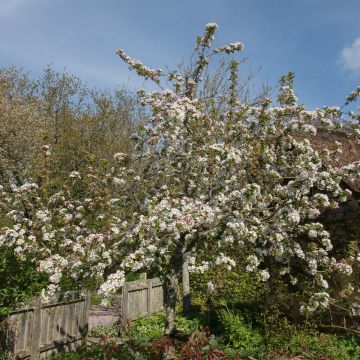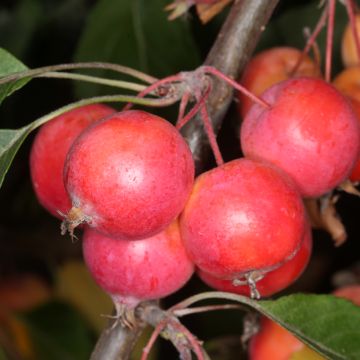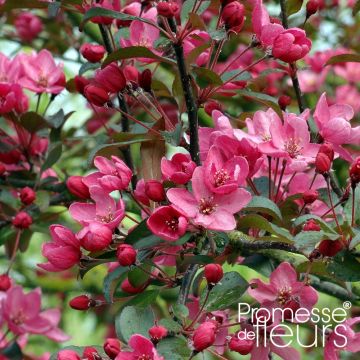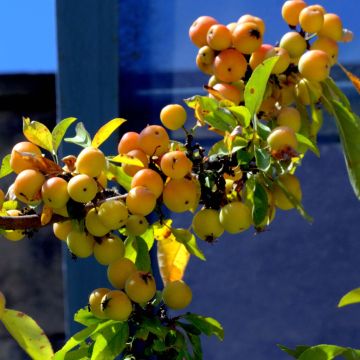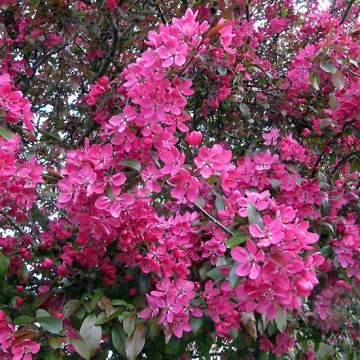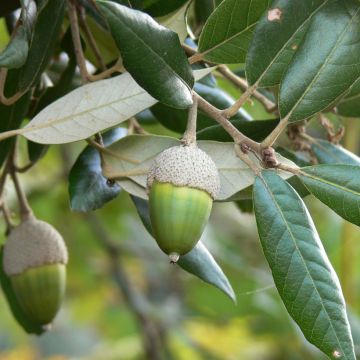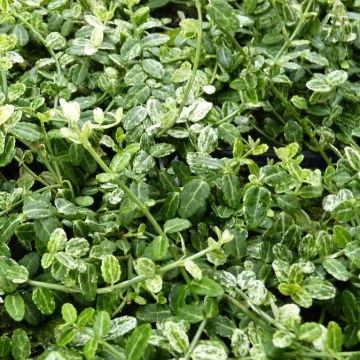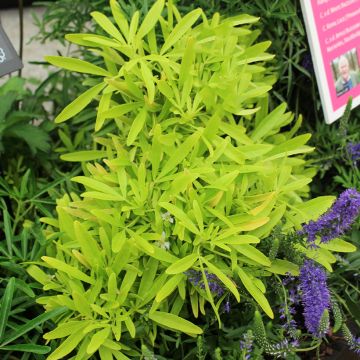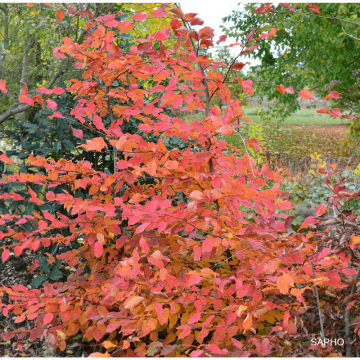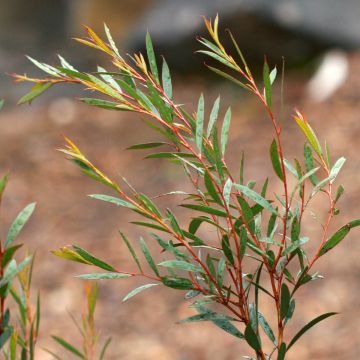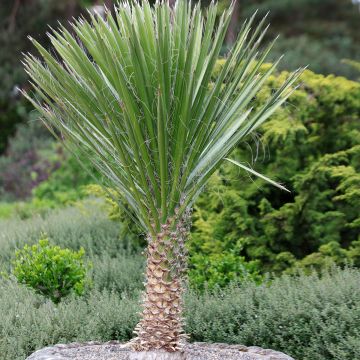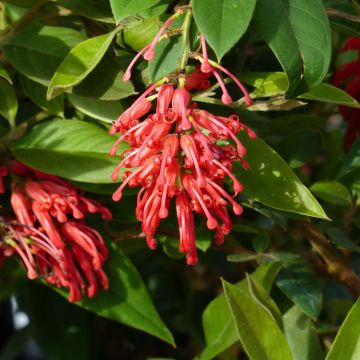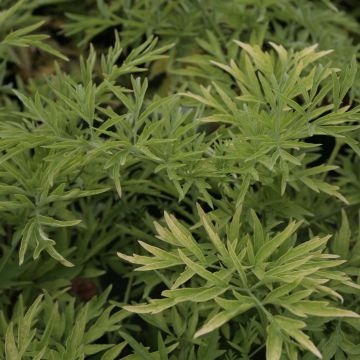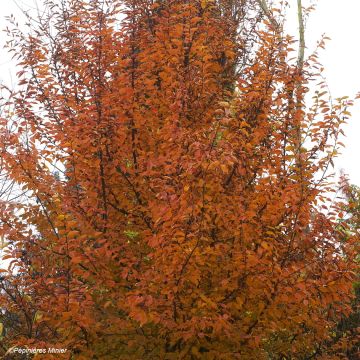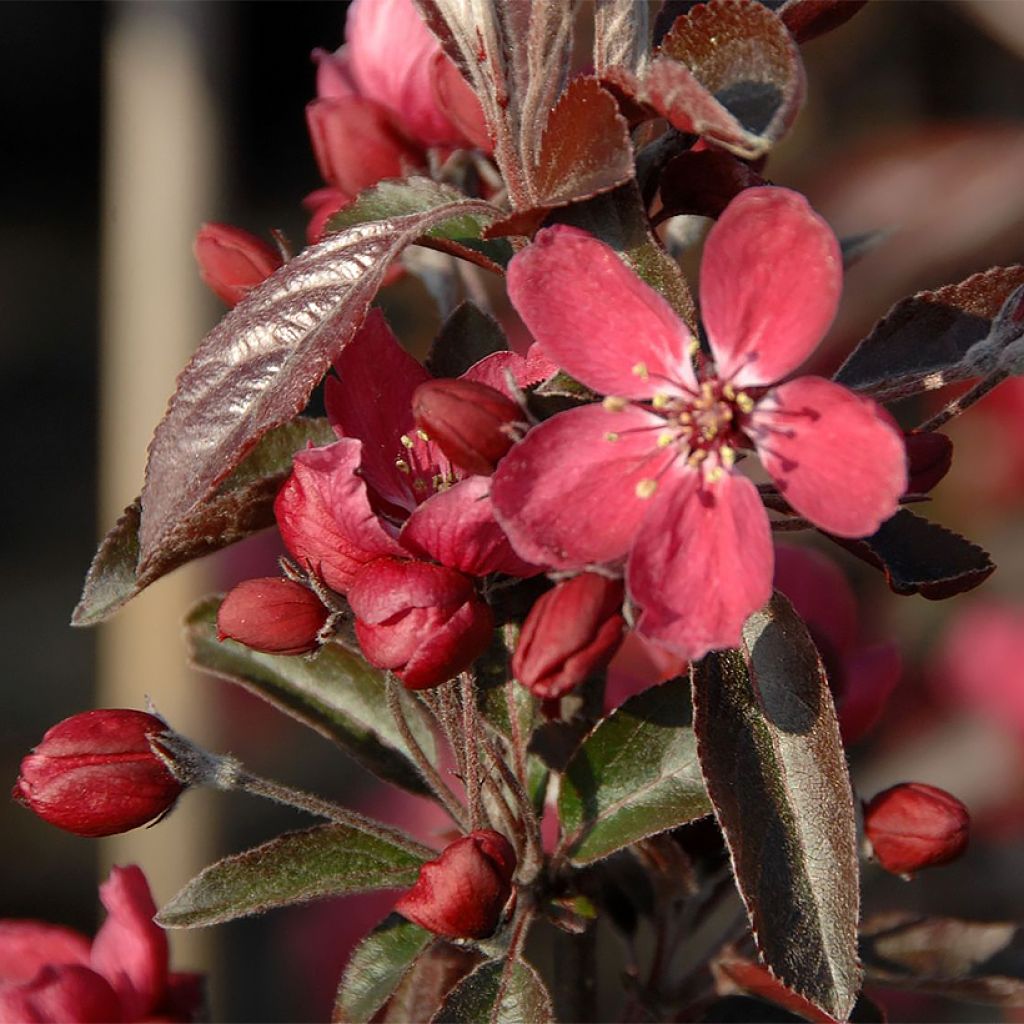

Malus Dark Rosaleen - Crab Apple
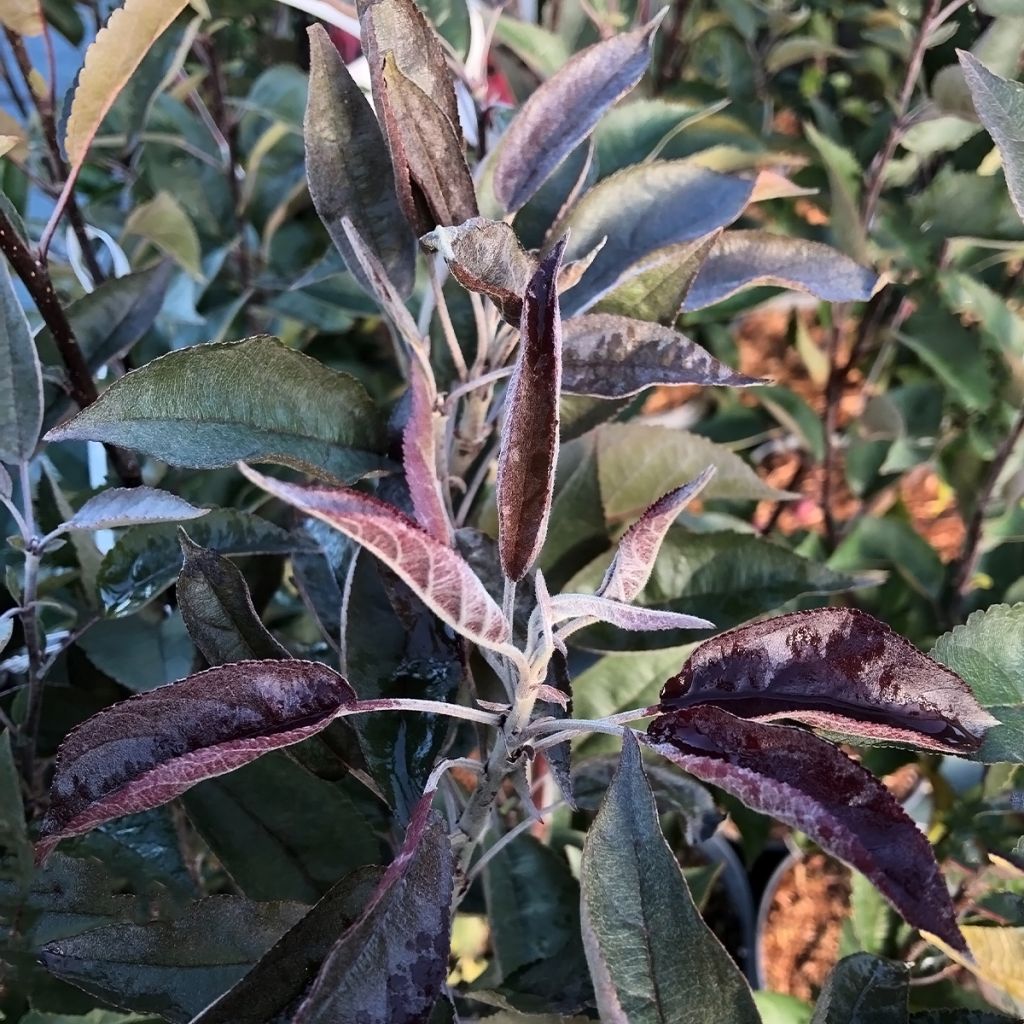

Malus Dark Rosaleen - Crab Apple
Malus Dark Rosaleen - Crab Apple
Malus Dark Rosaleen
Apple Tree, Crab Apple
Well supported the rather peculiar winter. Beautiful foliage, very dark, in a lovely contrast with the spring flowers, pink in colour. Waiting for the definitive recovery and for this opulent flowering characteristic of 'apple trees'.
Nathalie F., 27/05/2023
Why not try an alternative variety in stock?
View all →This plant carries a 24 months recovery warranty
More information
We guarantee the quality of our plants for a full growing cycle, and will replace at our expense any plant that fails to recover under normal climatic and planting conditions.
From €7.90 for pickup delivery and €6.90 for home delivery
Express home delivery from €8.90.

Does this plant fit my garden?
Set up your Plantfit profile →
Description
Malus 'Dark Rosaleen' is a superb variety of ornamental crab apple tree that will captivate not only with its massive bright pink spring flowers, its particularly abundant fruiting, and also with its foliage which changes colour enhances that of the flowers and then that of the fruits, from spring to autumn. It also has a very hardy temperament and excellent disease resistance. Its countless small dark red apples delight both gardeners and birds, while its flowers feed bees. It is a self-fertile crab apple tree that does not require the presence of another apple tree to bear fruit.
Ornamental apple trees are derived from various botanical species of the genus Malus belonging to the Rosaceae family. Hardy, accommodating, and easy to grow, flowering apple trees thrive in ordinary soil but prefer loamy, deep, loose, and moist soil as well as a sunny exposure. Once established, they are low maintenance and maintain their beautiful qualities. Numerous cultivars have been developed in Europe as well as in the United States, becoming increasingly attractive and disease-resistant.
Malus 'Dark Rosaleen' is an elegant small tree with an upright and fairly narrow habit when young, but its crown widens with age. At maturity, it reaches an average size of about 6.50 m (21ft) in height and almost the same in width. It has wide, sturdy, and even branches and maintains a beautiful shape without the need for pruning. It has a long lifespan. Dark Rosaleen flowers in May or June, depending on the region, on branches adorned with very young red to brown leaves that will turn slightly green in summer. The flowers are numerous buds of a deep and shiny pink shade. They quickly open into small flowers, ranging from bright pink to light pink or blush white. These flowers are visited by bees, and this is followed by the formation of numerous tiny apples measuring 1 cm (1in) in diameter. When ripe in September-October, they are dark red in colour. They remain on the branches for quite some time if not eaten by birds. The deciduous foliage, barely purplish in summer, becomes bright orange to red in autumn before falling. It consists of ovate, alternate, and dentate leaves. The root system of this crab apple tree is a taproot-type: it will develop well in deep soils.
The 'Dark Rosaleen' apple tree finds its place in medium-sized gardens or large flower beds. In the orchard, it promotes the pollination of fruit-bearing apple trees that bloom at the same time. Its abundant flowering, although possibly less longlasting than that of a flowering cherry tree, is prolonged by the beauty of its fruits. It can be easily be associated with other fruit trees for small gardens. It also pairs well with large shrub roses, lilacs, or even hawthorns. When space allows, ornamental apple trees can be planted in a large hedge, on a slope, on in a rather magical spring , as well as in autumn with their often sumptuous colours at the end of the season.
Malus Dark Rosaleen - Crab Apple in pictures


Plant habit
Flowering
Foliage
Botanical data
Malus
Dark Rosaleen
Rosaceae
Apple Tree, Crab Apple
Cultivar or hybrid
Other Malus - Crabapple
Planting and care
Easy to grow in ordinary soil, Malus 'Dark Rosaleen' requires a bright and sunny exposure to flower well. Ornamental Malus trees are generally very accommodating, but they like fertile, loose, and deep soils. After careful planting water regularly for the first two years, and they will then be low maintenance. Place this apple tree in the sun or partial shade, allowing it room to spread. Dig a large planting hole. If the soil is poor, add compost to the planting soil and apply fertilizer or mulch to the base around the tree every spring.
Planting period
Intended location
Care
-
, onOrder confirmed
Reply from on Promesse de fleurs
Striking foliage shrubs
Haven't found what you were looking for?
Hardiness is the lowest winter temperature a plant can endure without suffering serious damage or even dying. However, hardiness is affected by location (a sheltered area, such as a patio), protection (winter cover) and soil type (hardiness is improved by well-drained soil).

Photo Sharing Terms & Conditions
In order to encourage gardeners to interact and share their experiences, Promesse de fleurs offers various media enabling content to be uploaded onto its Site - in particular via the ‘Photo sharing’ module.
The User agrees to refrain from:
- Posting any content that is illegal, prejudicial, insulting, racist, inciteful to hatred, revisionist, contrary to public decency, that infringes on privacy or on the privacy rights of third parties, in particular the publicity rights of persons and goods, intellectual property rights, or the right to privacy.
- Submitting content on behalf of a third party;
- Impersonate the identity of a third party and/or publish any personal information about a third party;
In general, the User undertakes to refrain from any unethical behaviour.
All Content (in particular text, comments, files, images, photos, videos, creative works, etc.), which may be subject to property or intellectual property rights, image or other private rights, shall remain the property of the User, subject to the limited rights granted by the terms of the licence granted by Promesse de fleurs as stated below. Users are at liberty to publish or not to publish such Content on the Site, notably via the ‘Photo Sharing’ facility, and accept that this Content shall be made public and freely accessible, notably on the Internet.
Users further acknowledge, undertake to have ,and guarantee that they hold all necessary rights and permissions to publish such material on the Site, in particular with regard to the legislation in force pertaining to any privacy, property, intellectual property, image, or contractual rights, or rights of any other nature. By publishing such Content on the Site, Users acknowledge accepting full liability as publishers of the Content within the meaning of the law, and grant Promesse de fleurs, free of charge, an inclusive, worldwide licence for the said Content for the entire duration of its publication, including all reproduction, representation, up/downloading, displaying, performing, transmission, and storage rights.
Users also grant permission for their name to be linked to the Content and accept that this link may not always be made available.
By engaging in posting material, Users consent to their Content becoming automatically accessible on the Internet, in particular on other sites and/or blogs and/or web pages of the Promesse de fleurs site, including in particular social pages and the Promesse de fleurs catalogue.
Users may secure the removal of entrusted content free of charge by issuing a simple request via our contact form.

































